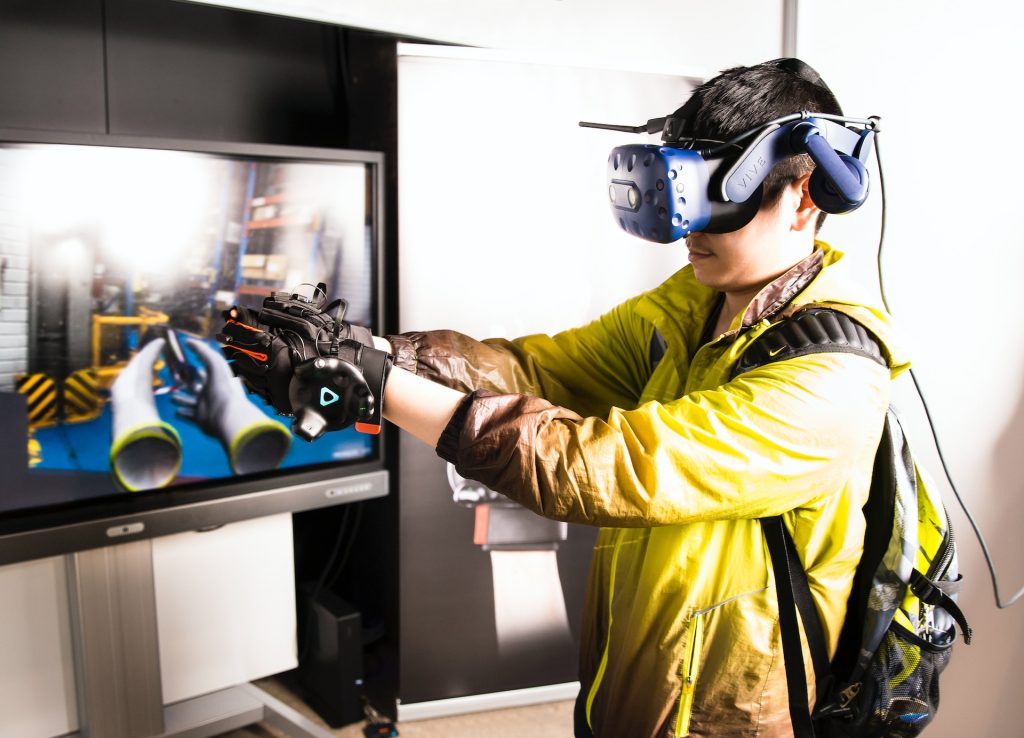The video gaming industry is no stranger to evolution and innovation. As we gear up for another round on the never-ending rollercoaster of change, one can’t help but wonder: how will video games change in the next year?
From the nascent days of Pong and Space Invaders to the modern marvels of The Witcher 3 and Cyberpunk 2077, video games have always been a reflection of technological progress. As we anticipate the changes and trends to come in the next year, we find ourselves on the precipice of a new era in gaming. Here’s what we’re excited about.
Future Gaming Trends That Change Your Experience in Gaming

1. A New Era of Immersion with Virtual Reality (VR)
Virtual Reality (VR) is set to dominate the gaming scene in the next year, as advancements in technology continue to enhance the immersive experiences VR games can offer. This evolution, combined with a growing consumer appetite for VR gaming, promises to usher in a new age of hyper-realistic gameplay that blurs the lines between reality and the digital realm.
2. Pioneering Artificial Intelligence (AI) in Gaming
Gaming AI has been maturing over the years, but we’re about to witness a leap in AI sophistication. By leveraging machine learning and neural networks, AI-controlled characters will have the capacity to learn from and adapt to a player’s style. This means we can expect NPCs (Non-Player Characters) to become more intelligent and challenging, offering players an unprecedented level of competition and realism.
3. The Advent of Cloud Gaming
The future of gaming could very well be in the clouds. Cloud gaming services like Google Stadia and Microsoft’s Project xCloud are already making a mark. The next year is likely to see broader adoption of this technology as it allows players to stream high-quality games on multiple devices without the need for expensive hardware.
4. Rise of Cross-platform Gaming
Cross-platform gaming is expected to rise as game developers and platforms understand the value of interconnected gaming ecosystems. Whether you’re on a console, PC, or mobile, the upcoming year will see a growth in games that allow players to compete with each other, regardless of the platform they are using.
5. The Boom of Esports
Esports has experienced a meteoric rise over the past few years, and this trend shows no signs of slowing down. With major brands and investors throwing their hats into the ring, we can expect even larger Esports tournaments, bigger prize pools, and increased mainstream acceptance and viewership.
6. The Expansion of Indie Gaming
With platforms like Steam and Epic Games Store providing an arena for independent game developers, the indie gaming scene is thriving. Over the next year, we expect to see a surge in indie games as developers continue to push the boundaries of creativity and innovation.
7. Widespread Adoption of Ray Tracing Technology
Next year, expect to see more games using ray-tracing technology. Ray tracing is a rendering technique that can create incredibly realistic lighting effects. It simulates the physical behavior of light, allowing for hyper-realistic shadows and reflections. As hardware capable of supporting ray tracing becomes more affordable and widespread, expect this feature to become standard in AAA games and more accessible to the mainstream gaming audience.
8. Growth of Social Gaming
The global pandemic has emphasized the importance of connectivity and community. Social gaming, which incorporates multiplayer and interactive elements that allow players to connect and compete online, has filled this need for connection. Over the next year, the growth in social gaming is likely to continue as developers create more games focusing on cooperation, competition, and community building.
9. Increasing Influence of Blockchain in Gaming
The upcoming year may see more game developers incorporating blockchain technology into games and gaming goods marketplaces. Blockchain could potentially change the way in-game transactions are conducted, providing security and transparency. NFTs (Non-Fungible Tokens) and crypto-based games are likely to gain more traction, allowing players to truly own digital assets and even profit from their gaming.
10. Personalized Gaming Experiences with Big Data
As technology continues to advance, game developers have more tools at their disposal to create personalized gaming experiences. Big Data and analytics are becoming increasingly crucial in understanding players’ behavior and preferences. Over the next year, expect games to use this data to create tailor-made experiences that adapt to individual playing styles, further enhancing engagement and enjoyment.
Conclusion
The future of video gaming holds tremendous promise, fueled by relentless technological innovation and an ever-growing global community of gamers. As we look to the future, it’s evident that the intersection of technology and human ingenuity will continue to redefine the boundaries of what’s possible in the gaming realm.
































































